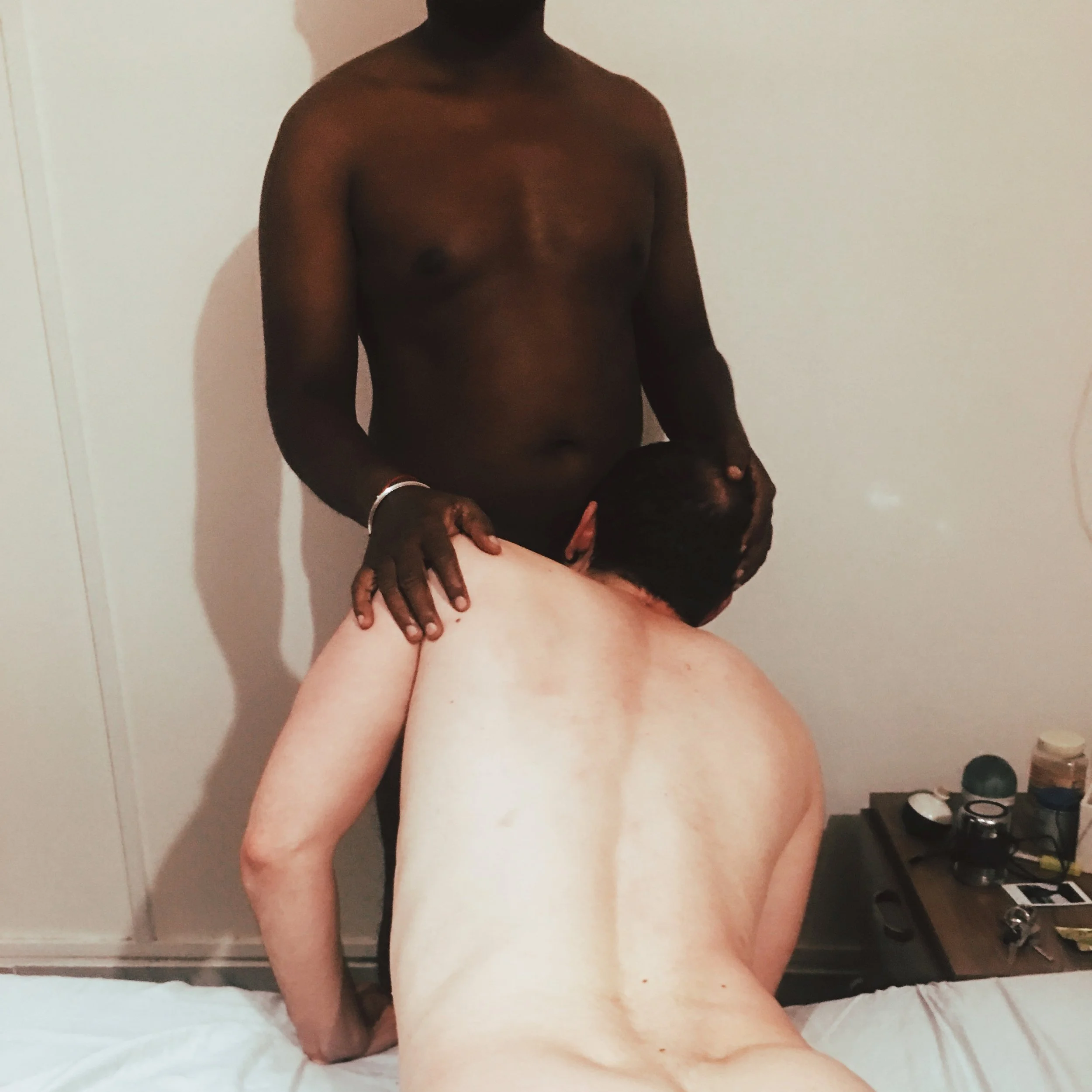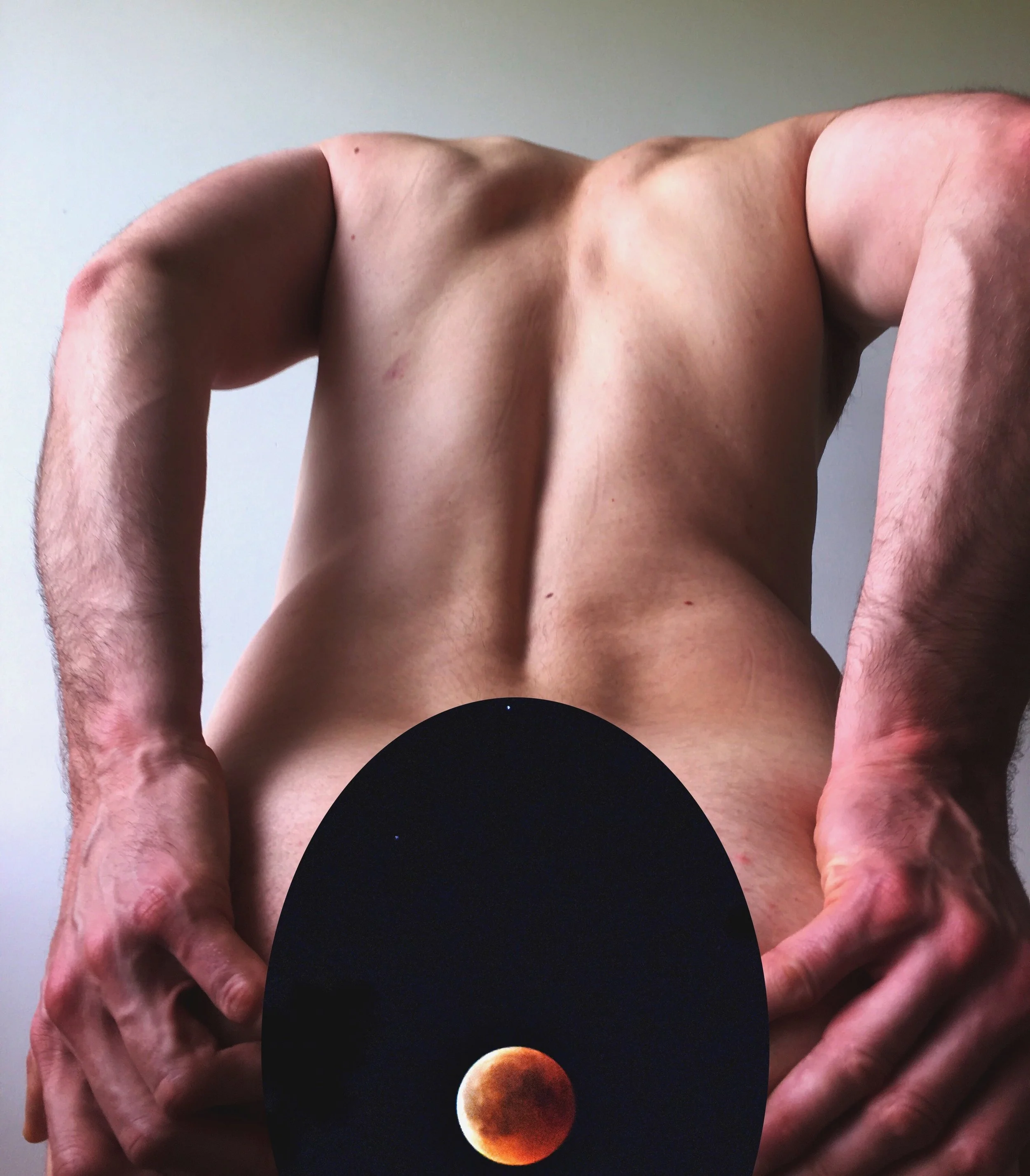Pulkit Mogha: Pushing the Gay Agenda in India
© Pulkit Mogha
By Sarah Sunday
White bodies photographed in the nude have long since slid away from being controversial or risqué. They have instead become artistic and tasteful, especially those in the female form. Conversely, brown, male nudes still require justification to be viewed as artwork. The beauty of white bodies and brown bodies are not viewed equally; western culture has left the former with higher worth than the latter. Beauty, however, is in the eye of the beholder. Indian photographer Pulkit Mogha monopolizes on his own view of beauty: brown bodies, hairy and poised in snapshots of pleasure; Indian men naked and posing in sexual and vulnerable positions.
© Pulkit Mogha
From Delhi to Goa, Mogha captures queer and sexual scenes of pleasure and intimacy, mostly focusing on queer men. Mogha uses Instagram as his sexual playground where he pushes the gay agenda and attempts to showcase his work, despite the guidelines and restrictions the app has established. Not shy to nakedness and sexuality, Mogha discussed his personal and creative experiences and with us here at Musée Magazine.
“Most of my photography happens within private spaces with no audience,” tells Mogha, “where subjects are able to put their guard down and are comfortable talking about their insecurities. There is little to no process, and the outcome can never be premeditated. But when you are in that space, the goal is to capture the moment of vulnerability as an expression of desires where limits can be pushed.”
© Pulkit Mogha
In India last year a law was passed to prohibit discrimination based on sexual orientation - a democratic step forward for a country of over one billion. However, one only needs to pick up a short book of history to determine that the changing of a law does not equate to the changing of a social environment. Still, “in India the discussion of same-sex marriage hasn't even been pursued,” Mogha says. True change within the attitude of a larger people, especially a people as large as those who make up India, takes an indefinite amount of time.
“Although I get tremendous support from the queer community and allies,” explains Mogha, “I also get equal amounts of hate from right-wing ideological groups. In September 2016, I was physically assaulted in public by two individuals in a metro station in Delhi. A police van was parked in view. They knew my daily routine through my Instagram and planned the ambush. They warned me they would find me if I continued 'my ways’. The incident strongly affected me. I moved houses, and it was months before I came back to doing what I do. Fear turned to anger and I couldn't let something this negative be what stopped me. Visibility is activism, so I came back harder.”
© Pulkit Mogha
His photographs would be deemed risqué by Western standards. Men seemingly penetrate and grab at each other. Many of his photos have pixels covering the bits and pieces that would break Instagram’s guidelines. His work is unadulterated and pure in its brashness and sensuality. “I am a queer artist but my work isn't queer alone. I also take photos of intimacies, vulnerabilities, desires, fetishes, and masculinities of men (straight and otherwise) and anything I relate to as queer, as a man, and as an Indian. These photos speak volumes about desire, bodies, and habits that we have.”
You can find more of Mogha’s work on his Instagram page here.
© Pulkit Mogha












